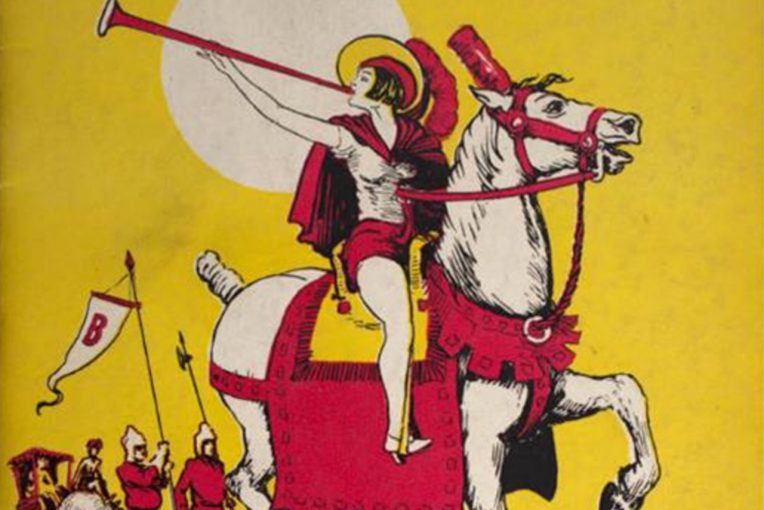Working at Milner Library has been an invaluable experience for me. As a student employee, working on the circus route books was a dream come true. Not only was I able to combine my love of literature and history into something tenable, but I was able to schedule my work around my classes so that the two did not conflict with one another.
It was a learning experience at first since I had never really done anything like this—besides the basic data entry that qualified me for the job—so I was constantly educating myself on circus terminology and metadata how-to. It didn’t take me long to get up to speed. The work was enthralling, and I launched myself headfirst into it. I quickly figured out how to utilize obituaries and other historical documents to research famous performers, and logged interesting tidbits of information in route books. For instance, did you know that some circuses performed at prisons?
Surprisingly, the route books also often served as important primary sources. In some route books, they logged the racism that they observed. Important insight was even given during wartime leisure and the war effort. One side show performer, named Shine Bates McFarland Falk, a purported “wild man” in captivity, was even paid $1,000 a week, which has a buying power of $30,912.17 today! For another side show performer I was able to find not only her obituary, but an 1871 published book about her act and her adoptive parents! Her name was Zanobia, known for a physical mutation that left her with webbed fingers and was thus named “the fan child.”
I think she was my favorite performer that I researched, simply because of the wealth of information that I was able to find. This research and discovery were my favorite part of the job. It made the names I was transcribing come to life. At first, they were simply ink on paper, but after discovering their life story, they became real to me in ways they might not have otherwise.

As I did research, I noticed that the most famous performers that I was able to find out the most information on were the ones that were the most marginalized. Women, people of color, people with disabilities—these were the performers that history remembered. Yet, most of them didn’t have name authorities in the Library of Congress. Eager to change this, and with permission from my supervisor, I set out to create a master list of all of these performers and everything I was able to find on them such as obituaries, books, or articles. Eventually, I believe that all of these performers will have their own name authority and they will finally get the recognition they deserve, even if it is posthumously.
I graduated from ISU with a bachelors degree in English in August 2019 and was subsequently hired as an extra-help employee at Milner. As an extra-help employee, my job duties are much the same except I was given more responsibilities. By this time, our small team had made some amazing headway into the more than 300 route books we were working on, so I got to do some other tasks to help sort the already-completed books. This included organizing act types into common categories so that they could be disambiguated or searching for duplicates in act names.
That was hard, as these route books had no naming standardization so one act name could be listed under up to eight different titles: The Potters, Peerless Potters, Potter Troupe, etc. However, it was incredibly rewarding to do so, as again, as a historical resource this meant that any disambiguation that I would do could help out a future historian, genealogical researcher, or even just an interested student.
I wholeheartedly believe that this position has helped me cement my future goals. As a student, I had switched from a History major to an English major, thinking that would serve me better. But after this position, I found that my love of history has bloomed once more. The days when I would have a route book that went into the daily, mundane lives of performers and crew from the early 1900s was like striking gold. It was amazing to feel like I was rediscovering something that might help people in the future – especially since I always made sure to log these interesting tidbits of information for future reference.
I will be eternally grateful to my supervisor, Angela Yon, for taking the chance on me and mentoring me as both a student and an extra help employee. Thanks to her, I believe I have found my passion and what will fulfill me professionally and I can only hope that the work I did over the past year will someday inspire someone else as it inspired me.

